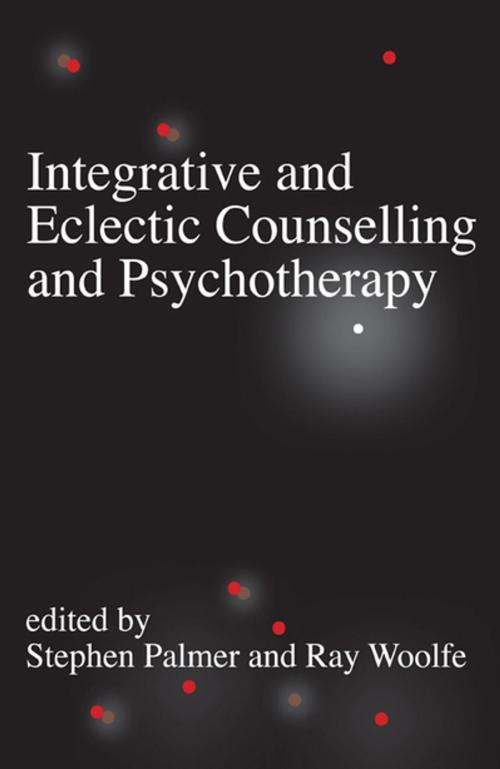Integrative and Eclectic Counselling and Psychotherapy
Nonfiction, Social & Cultural Studies, Social Science, Human Services, Health & Well Being, Psychology, Psychotherapy| Author: | ISBN: | 9781446230183 | |
| Publisher: | SAGE Publications | Publication: | December 30, 1999 |
| Imprint: | SAGE Publications Ltd | Language: | English |
| Author: | |
| ISBN: | 9781446230183 |
| Publisher: | SAGE Publications |
| Publication: | December 30, 1999 |
| Imprint: | SAGE Publications Ltd |
| Language: | English |
Stephen Palmer is Joint award winner of the Annual Counselling Psychology Award for outstanding professional and scientific contribution to Counselling Psychology in Britain for 2000.
`The editors' support for the integrative project is clear, but the book will hold its own with the sceptics too. I recommend it' - Counselling at Work
This innovative and timely book examines the issues and ideas surrounding integration and eclecticism in a therapeutic context, and provides a detailed account of a wide range of approaches in use.
Following an exploration of the origins of integrative and eclectic processes, 10 approaches are explained in detail. Chapters on each approach: describe its central concepts, assumptions and therapeutic goals; outline its view of how psychological disturbance is acquired, perpetuated and resolved; examine how the theory relates to practice - including examples of typical sessions and case studies; and consider which clients might benefit.
Further chapters explore the implications of using integrative and eclectic approaches for training, supervision, for working in a time-limited context and from a multicultural perspective.
Stephen Palmer is Joint award winner of the Annual Counselling Psychology Award for outstanding professional and scientific contribution to Counselling Psychology in Britain for 2000.
`The editors' support for the integrative project is clear, but the book will hold its own with the sceptics too. I recommend it' - Counselling at Work
This innovative and timely book examines the issues and ideas surrounding integration and eclecticism in a therapeutic context, and provides a detailed account of a wide range of approaches in use.
Following an exploration of the origins of integrative and eclectic processes, 10 approaches are explained in detail. Chapters on each approach: describe its central concepts, assumptions and therapeutic goals; outline its view of how psychological disturbance is acquired, perpetuated and resolved; examine how the theory relates to practice - including examples of typical sessions and case studies; and consider which clients might benefit.
Further chapters explore the implications of using integrative and eclectic approaches for training, supervision, for working in a time-limited context and from a multicultural perspective.















